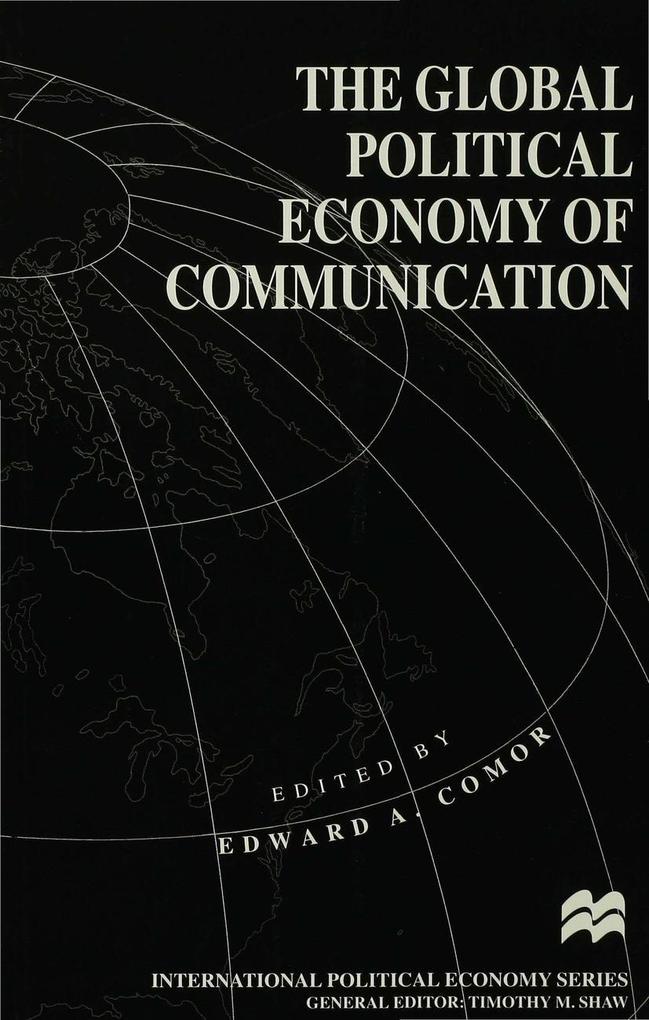This collection examines the theoretical, analytical and political implications of global developments involving telecommunications and related technologies. The book's contributors - from fields such as economics, political science and communication studies - relate research on the political economy of communication with the work of international political economy scholars. The book stimulates cross-disciplinary debates among readers in these and other areas in order to, first, critically evaluate recent global developments involving communications and, second, to encourage the development of a more holistic and inclusive approach to these and related issues.
Inhaltsverzeichnis
Foreword: Communication and International Political Economy; C. N. Murphy - Acknowledgements - List of Acronyms - Notes on the Contributors - Introduction: The Global Political Economy of Communication and IPE; E. A. Comor - PART 1: CRITICAL PERSPECTIVES - The Information Society: Implications for Economic Institutions and Market Theory; W. H. Melody - Myth, Telecommunication and the Emerging Global Informational Order: The Political Economy of Transitions; I. C. Parker - Surveillance and the Global Political Economy; M. Hewson - PART 2: CASE STUDIES - Communication Technology and International Capitalism: The Case of DBS and US Foreign Policy; E. A. Comor - International Services Liberalisation and Indian Telecommunications Policy; S. D. McDowell - Contested Terrain: Hong Kong's International Telecommunications on the Eve of 1997; M. Mueller - PART 3: DEMOCRATIC OPTIONS - Wired World: Communications Technology, Governance and the Democratic Uprising; A. Jones - Developments in Communication and Democracy: The Contribution of Research; J. D. Halloran - Index













